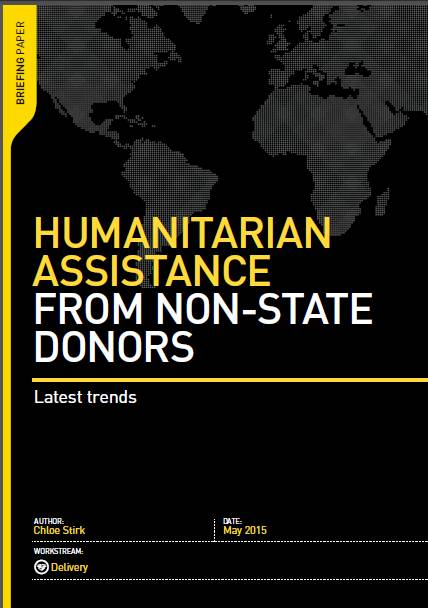
Non-state or private donors – including individuals, trusts and foundations, and companies and corporations – have long played a key role in supporting the international humanitarian response. As part of efforts to leverage new and alternative forms of assistance to help close the growing humanitarian financing gap, the humanitarian sector is currently focusing significant attention on building the role of private actors – particularly the private sector, such as companies and corporations – in humanitarian response. This has been driven by the experience of, and the increased and diversified role for, private donors in recent crises, for example in the response to Ebola, Typhoon Haiyan and the Syrian refugee situations. There is live and high-profile debate on the issue, including as part of the World Humanitarian Summit consultations and the Inter-Agency Standing Committee’s (IASC) Future Humanitarian Financing Initiative. It will undoubtedly also be a focus for the forthcoming High Level Panel on Humanitarian Financing. This increased attention on private actors also comes at a time when wider financing for development discussions are beginning to recognise more strongly both the relevance and necessity of a broader range of financial flows to achieve the sustainable development goals (SDGs), with the role of private finance – particularly in relation.
Office
External programmes
Citation
Stirk, C (2015) Humanitarian assistance from non-state donors, [online], Available: http://www.globalhumanitarianassistance.org/wp-content/uploads/2014/05/Humanitarian-assistance-from-non-state-donors-2014.pdf







